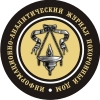Problem of the man's future: universal evolutionism or directed development of self?
© Valeriya Udalova (Valeriya Pride), Danila Medvedev.
© Tsiolkovsky State Cosmonautics museum, Kaluga
Section "Cosmonautics and society: Tsiolkovsky's pholosophy"
2007

One of the most important steps in the development of science has been the emergence of evolutionary theory. Based in part on these ideas in the second half of the XX century there appeared synergetics, expanding principles of evolution to different levels - inert matter, life and society. This approach, called "universal evolutionism" is the basis of a new ideological approach to the Universe and is used as a basis for integration of science and culture. That is, the development of the entire universe, including our own development, described in the framework of similar evolutionary processes.
As the basic principle of evolution there is often talk of the triad: mutability - heredity - selection. When it is stated that a universal theory of evolution describes the entire set of phases of self-organization of the universe, including the history of human civilization, it is implicitly assumed that all phases contain all the necessary basic preconditions for the evolution. The implication is that even future self-organization of the universe is to be described in terms of universal evolutionism. Such statements, however, have little foundation.
We argue that, from a certain moment, it is incorrect to consider directed development as evolution. One should distinguish between self-organization of the universe in its broadest sense and self-organization of a self-conscious system. Of course, the Universe has the property of containing some evolutionary processes within itself. But a self-conscious system, which determines how it is to develop further by itself, is subject to entirely different rules. One can, of course, at a stretch, talk about the presence attractors, but that would not be entirely correct. Because to the extent to which development processes are controlled, one should not speak about attractors, but about the systems' goals instead. For example, if we are building a house, it is hardly correct to call "an attractor" the building plans for this house, to which the result of this construction is "attracted".
There are considered to be three levels of organization of nature: inanimate matter, life and society. Inanimate matter does not develop purposefuly towards its goals, life does not develop purposefuly towards its goals, and throughout most of the history, society also did not develop purposefuly towards its goals. It is correct to describe the development of nature on these three levels with evolutionary principles.
When we talk of conscious development where we already have man as the creator of evolution, controlling the process of his own development as well as the process of development of the Universe, one should analyze this kind of future by moving on from evolutionism to the study of self-directed development of self-modifying systems.
This can be attributed to the role of intellect. Intellect in its function does not rely on evolution and natural selection (even artificial selection is already not evolution), intellect simulates possible outcomes inside itself, and inside this virtual thinking space it makes its choice. But this intellectual analysis does not have to consist of iteration through various options or any evolutionary process. Instead the "design" is possible: there is a known goal, as well as there are known necessary steps, needed to achieve the correct structure. For example, when engineers design a bridge, they do not do so by iterationg through possible options nor evolutionary selection, but act according to certain rules, that is, according to the algorithm.
In general, with the expansion of the role of intelligence, evolution was being replaced by direct work of the intellect. An interesting question is, at what point the development of mankind is no longer described by the model of universal evolutionism. Apparently, this happens gradually and is associated with the level of intelligence and its growing influence on the development of intelligence.
From the universal evolutionism point of view there are principles of evolution and society (and mind) will always evolve according to these principles. But now the possible future transition from random development to controlled development (that is, from evolution to design) seems very pertinent. Looking at it in the context of society, we see a shift from democracy and free market (on every level of society) to a fully controlled process (reflexive control). Question of controlled development of society (mankind) is directly connected to the question of the choice of strategy. Interestingly, one of the most discussed strategies - sustainable development - means that we can control the process, but must manage it not in our own interests, but to preserve nature, to preserve resources. We think the main point in this context is not the question of the development of nature and society (or especially inert matter), but the question of the development of the mind.
How would a self-modifying system evolve? This question is closely connected with the question of the nature of the technological singularity, the challenge of creating a strong artificial intelligence.
In our opinion, ideas of Chardin and Vernadsky should not be developed in the direction of universal evolutionism, since, even if the evolutionary development will lead to some kind of noosphere (and that depends on the definition of the noosphere), the noosphere - is not yet the end. If one can assume the Internet to be the noosphere, as some authors have done, then it is indeed yet reigned by randomness, and is governed by evolutionary principles. But when the process of the development of this system will become controlled (and all the indications are that it will), then it will be a transition from the noosphere to supermind.
If we talk about the future, then we're not just talking about the man and his intellectual development, but we are talking about the supermind, about posthuman. At this point, the elemental forces of nature will be brought under control, and one will be able to talk about the disappearance of randomness at the highest levels of the organization. This inevitably comes into conflict with the "normal" evolution, because then there is no chance of variation, natural selection, attractors or bifurcations. There is only a fully managed system, the development of which is controlled by a superintelligence in accordance with a certain strategy, and certain objectives in the framework of the "low-cost" information processing within said intelligence. Such system, of course, is not evolving, it is a "self-extracting" one.
We believe that when developing ideas of Vernadsky we should be taking a step further. Noosphere is not the final stage of development, and it is not the goal. Noosphere (there is yet no generally accepted precise definition) is now understood in terms of what we call the "knowledge society", and so on. All, that could described by Vernadsky at the level of his understanding in his time, is nothing more than a supra-individual information structure, ie, the Internet and its future variants.
On the other hand, supermind - is a much more complex and sophisticated system than the noosphere. From the standpoint of projective philosophy, it is important to state that it is not to the noosphere the humanity should be striving, but to the supermind. Thus, mankind does not need stable (noospheric or any other kind) development, but human transformation into a super-intelligence, as well as the creation of the supermind (based on AI) and, of course, the solution of the related issues and problems, including mathematical problems of stable systems of goals and existential risks associated with the supermind.
http://readings.gmik.ru/lecture/2007-PROBLEMA-CHELOVECHESKOGO-BUDUSCHEGO...










































